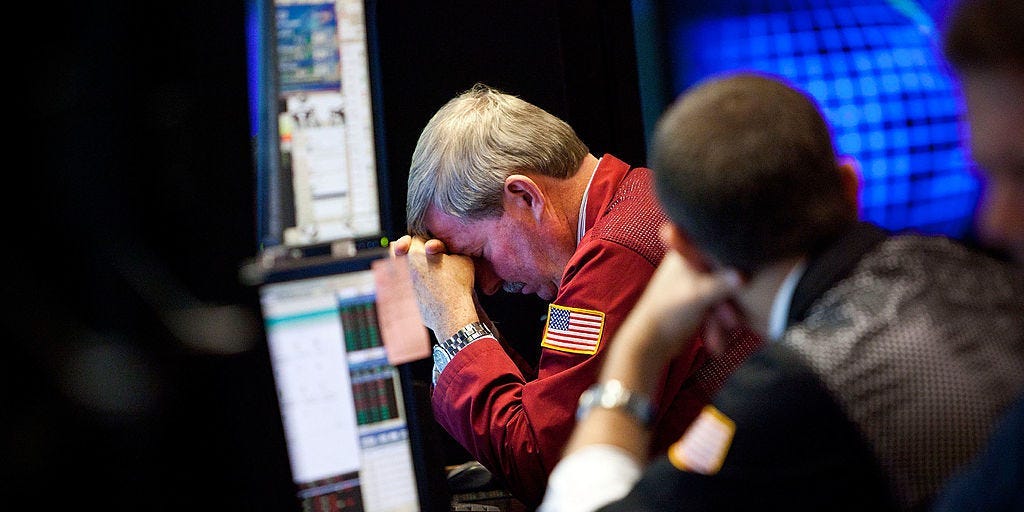
- A BlackRock hedge fund suffered big losses after it reportedly increased its bet on Russian stocks right before the invasion of Ukraine.
- BlackRock's Emerging Frontiers Fund plunged more than 10% in February due to the Russia bet.
- "We believe the risk/reward of being long Russian equities is favorable relative to the risk we see of conflict," the hedge fund told clients before the invasion.
A BlackRock hedge fund suffered big losses for its clients in February after the fund increased its wager on Russian stocks just before the country invaded Ukraine, according to a Bloomberg report.
The BlackRock Emerging Frontiers Fund lost more than 10% in value last month, said the report, which cited people with knowledge of the matter and an investor document seen by Bloomberg.
The plunge stung even more for the hedge fund given that its Russian stock bet was already a loser in January, before it increased its exposure to the country.
The hedge fund's bet on Russia stocks accounted for about 9% of its total gross assets, and the positions have since been written down to zero.
The fund, which managed $960 million at the end of January, was down about 7% so far this year, according to the report. Insider reached out for comment from BlackRock but did not receive a response in time for publication of this article.
Driving the thesis behind the hedge fund's bullishness on Russian stocks was the idea that they were undervalued relative to other global stock markets, that the ruble was undervalued, that Russian bonds had posted solid returns, and that the country had a large current account surplus.
"We traveled to Russia at the end of January to assess the situation on the ground given our large net long position there. We believe the risk/reward of being long Russian equities is favorable relative to the risk we see of conflict," the hedge fund told clients in a letter before the country invaded Ukraine.
And even after Vladimir Putin launched attacks against Ukraine, the hedge fund's head, Sam Vecht, told investors he increased its bet on Russian stocks even further, likely seeing extreme value in the already beaten-down shares.
Since the war on Ukraine began, Russia's stock market plunged more than 50% before it was eventually closed. It has yet to reopen, and trading in the country's largest bank, Sberbank, on the London Stock Exchange led to shares falling 99% to just a penny.
Economic sanctions against Moscow from Western countries is sure to hurt any potential recovery in the Russian stock market if and when it reopens.